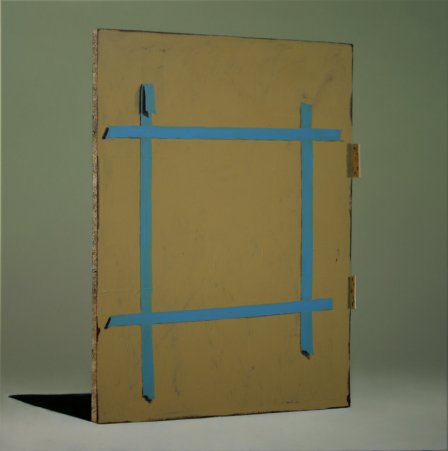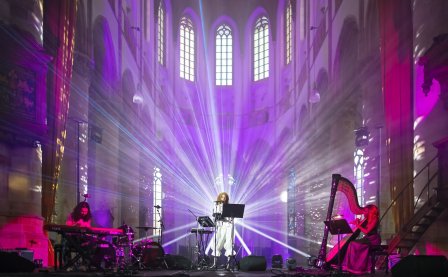“O shooting star
that fell into my eyes and through my body—:
Not to forget you. To endure.”
Rilke’s words. It is not about forgetting. It is about loss.
Forgetting is temporary. A face’s name leaps from your tongue but with the right scramble of stimuli — a wafted vapor of fresh croissant, a maybe flash of the first time with those eyes — there is recovery. Time resumes when what is forgotten reappears.
Reminders are the universe’s mnemonic agents. They cajole all the useless and vital beauties of the world into a web, a chart, a stringy grid for existing as a human being. Reminders are pathways to forging emotions.
A reminder isn’t remembering. A reminder is a haunting in reverse: this is the absent specter of what I will do, have done. You could walk away from a reminder if you wanted to. “Forget about it.” When it tips into memory though, feet get heavy and hallways lengthen. You might get lost.
Reminders trigger guilt. Today I wrote nothing, which reminds me that yesterday I wrote nothing and this text will arrive later than I wish it would have. Memories trigger guilt too, but they also inspire a wonderful and debilitating grief. Nothing, even the golden stuff, is as it was. It can’t be again. It barely was.
Like sand slipping around the circumference of an hourglass refusing to fall, memory is the end of time.
It was a fitting and simple proposal. The Caretaker would self-diagnose (the luxury and right of all artists) with early-onset dementia and represent in sonic terms the mind’s perspective of the mind unraveling. He would call it Everywhere at the end of time. It would unfurl in six progressive sequences of sound. It might represent an endpoint for The Caretaker identity as an extension of Leyland Kirby.
But it wasn’t just sounds of an imagined dementia: this was its music. The zone of Everywhere is the salvaged song of pre-war dancehall 78s, sieved and split, then looped and dropped, an impossible re-membering. Sounds (like reminders) can function without emotion. Music, though (like memory), preys on that old ruinous and romantic chemistry of feeling.
The feelings were myriad. Its labyrinthine hallways (like those spidering so many unseen rooms of an impossible hotel) presented moments of the unmistakably sublime rubbing right up against the anxious and icky. I never doubted The Caretaker’s deference and respect in his obsession; stage 3 and 4 not only scrambled and sliced the songs samples, but also shook the whole turntable in ways that reminded me of how my grandmother might find the word she was looking for only to lose the way her mouth worked. And maybe that’s why Everywhere at the end of time started to feel soggy at its center. Remember: “My point is that illness is not a metaphor, and that the most truthful way of regarding illness — and the healthiest way of being ill — is one most purified of, most resistant to, metaphoric thinking” (Susan Sontag, Illness as Metaphor). My skin crawled, haunted, as if memory loss is a thing to be fantasized, to be fetishized. As if memory is a thing at all, not biology’s box for a day’s things.
A memory is a thing, though. It’s the occasion for every gesture of art in this spinning world. And it looks golden, feels tender, smells warm. A memory is also a simple, knowable faculty, by which those feelings wash over our brains, our bodies, our us. And early-onset dementia is different from but related to forgetting, just like decay is different from but related to disease.
Another reminder, then: the project’s proposal was not to represent memory’s relation to music. It isn’t illness as metaphor so much as it’s a (personally) skewed portrait of malady. It’s tricky and slipping: the only language The Caretaker communicates in is of silences and noise, helixes of tension and cohesion called music. And like so many of the things we have no answers for with regards to dementia and its myriad forms, the deteriorating mind’s relation to music is somehow different. (Or: I remember how she couldn’t place the cat food in the cat bowl but “I’m so afraid that the plans we made underneath those moonlit skies/ Will fade away and you’re bound to stray if the stars get in your eyes” was supple on her tongue.) But this is not a memory. This is a musical project but not about music. This is a rendering of a disease in action.
Everywhere at the end of time, then, is an act of translation. It locates one thing and locutes another, different from but related to, like a memory, like all art, maybe.
In its sixth and final sequence, the location is the bedside. The locution is mostly hushes and murmurs. The Caretaker has taken us inside the last throes. This is music gasped. It is hard to stomach. “A confusion so thick you forget forgetting” is the void space around spent electric, the hot of last energy. “A brutal bliss beyond this empty defeat” is the powder after bone ground on bone. It’s too close. A few prescient thrums flit about, holdovers from the percussive blobs and tumored crevices of Stage 5. The crackles and hisses running out of the mouth were words once. I’m so afraid that the plans we made underneath those moonlit skies will fade away.
Some disease ends before life does. We recover sometimes, get to walk in sun near zinnias after it seems like we never would again. Of what we barely know about Alzheimer’s and its tendrils though, is that the disease debilitates until it results in death. And so I was small enough to wonder once where Everywhere would end. What was beyond the loss of time? Who would be surprised if after the last whimper and boom was no thing? Is nothing the only logical translation of nothing?
There is a moment where the flesh fails, where the spool runs over and the last breath sounds. If you listen to this Stage 6 in The Caretaker’s doomed masterpiece (I urge you to, in full, from snaking start to bombed-out finish), you will hear it. You might cry. I cried. It’s a tremendously hokey truth to admit, as treacherous as including biographical details (or: memories) in your every album review, but it’s at least an emotional response, which is what Everywhere at the end of time was in the first place, at the last. And it sounds like a loss but instead: a singing.
In its last minutes, in its translation of the body’s passage from here beyond, The Caretaker wrenches his project into a hope beyond our bodies; after our silence is a choir we can’t know, a new song, something extra-ambient whose aches are of the cosmos. And you don’t have to believe in anything to think there might be sounds beyond our being. It’s why you’re listening to music in the first place. To conclude his gnarled project in the company of those sounds is a vital betrayal of hope on Leyland Kirby’s part. I can’t thank him enough for it. In plotting sounds of loss, in renderings of decay and imaginings of the deepest dark, The Caretaker remembers to believe in what it could be beyond this world. It’s why he made this in the first place.
Nothing, even the golden stuff, is as it was. It can’t be again. But now? After?
Remember Rilke. It is not about remembering. It is about creation.
“O Sternenfall,
von einer Brücke einmal eingesehn—:
Dich nicht vergessen. Stehn!”
More about: The Caretaker




